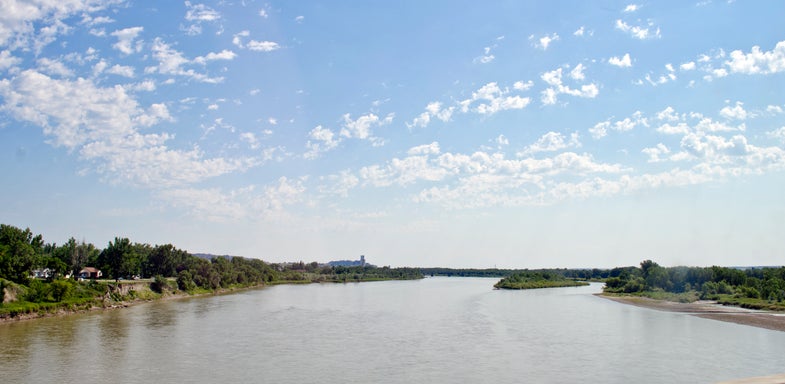Montana Shut Down Over 150 Miles Of River Because Of A Fish-Killing Parasite
A river runs through it

There might be wide open spaces all around you, but in Montana, the rivers are closed.
Last Friday, wildlife officials in Montana closed over 150 miles of the Yellowstone River and its tributaries in an effort to stop the spread of a parasite called Tetracapsuloides bryosalmonae, which has already killed thousands of Mountain Whitefish in the river and is starting in on the trout.
Writing at The Atlantic, Ed Yong explores the biology of the parasite and its relatives, all of which are distant kin to jellyfish. When it infects a fish, the parasite causes Proliferative Kidney Disease, which has been shown in the lab to kill between 20 and 100 percent of all the fish it infects.
The infection likely got a toehold into the fish population because the fish were already stressed by warmer than normal water temperatures, and lower than normal levels of water in the stream, which puts stress on the fish. You know how you’re more likely to get sick when stressed? Same goes for fish.
“A threat to the health of Montana’s fish populations is a threat to Montana’s entire outdoor economy and the tens of thousands of jobs it sustains,” Montana Governor Steve Bullock said. “We must be guided by science. Our state cannot afford this infectious disease to spread to other streams and rivers and it’s my responsibility to do everything we can to stop this threat in its tracks and protect Montana jobs and livelihoods.”
The river is currently closed to all water-based recreation. That means, no fishing, no boating, no tubing, no wading, nothing. The reasoning is that stopping human activity might allow fish to retreat to cooler ponds and deeper waters that would normally be occupied by people, taking away the stressor of human disturbance. The ban on fishing is also a bid to keep as many fish in the river as possible. Killing more fish while the population is struggling would decrease the chances of recovery of the valuable fishery, which is a top fly-fishing destination.
To prevent the spread of the disease into neighboring Yellowstone National Park, authorities are asking everyone to thoroughly clean any boats, waders, and other fishing or boating equipment before entering water on park lands. Other authorities in Montana are asking that the same precautions be taken when moving between rivers, streams or other bodies of water.